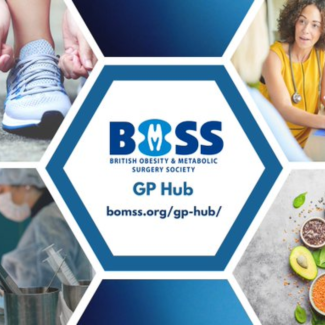The BOMSS GP Hub is a suite of six documents that have been developed by a multi-disciplinary working group with input from people with lived experience of bariatric surgery, which aim to support bariatric surgery follow-up in primary care. Bariatric surgery is the most clinically and cost-effective treatment for severe/complex obesity and has multiple health benefits. However, despite these significant benefits, in the long-term bariatric surgery can result in multiple issues including nutritional deficiencies. The National Institute for Heath and Care Excellence (NICE) has recognised the importance of follow-up for these patients and NICE CG189 recommended patients have specialist follow-up with their bariatric surgery team for the first 2 years post-surgery and are then discharged to GPs to continue to have lifelong annual reviews (including nutritional monitoring) under a shared-care model. However, studies have suggested that GPs lack confidence in managing patients after bariatric surgery and annual reviews are not taking place.
In the UK, the British Obesity and Metabolic Surgery Society (BOMSS) have published detailed guidelines for nutritional monitoring and management of patients who have had bariatric surgery. However, given the length of the document, it is not easily accessible for GPs. Therefore, a more accessible summary of BOMSS nutritional guidance together with some additional resources to support GPs with the lifelong management of patients after bariatric surgery have been developed.
The new BOMSS GP Hub can be found here and includes:
- BOMSS post-bariatric surgery nutritional guidance for GPs,
- BOMSS traffic light poster for the management of complications post-bariatric surgery,
- BOMSS overview of GP management of patients post-bariatric surgery,
- BOMSS pre-consultation questionnaire for patients,
- BOMSS GP consultation guide of post-bariatric surgery annual reviews
- BOMSS guidance on medications post-bariatric surgery for GPs.
These can all be downloaded as PDFs and are free to use for clinical purposes.
Please share with colleagues to help support patient care (for example, by including the weblink and/or copies in patient letters).




